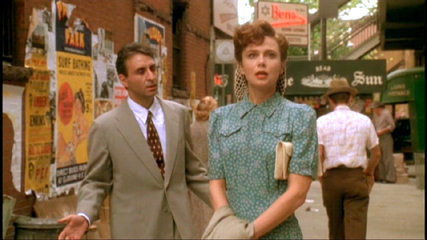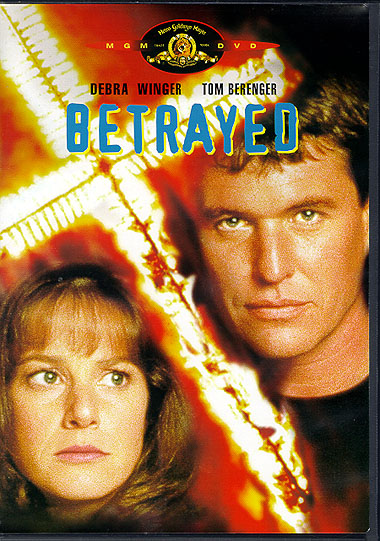This article appeared in the April 1989 issue of The Independent (vol. 12, no. 3); slightly tweaked in late January, 2010. –J.R.

Having attended the San Sebastian Film Festival on two separate occasions 16 years apart — in 1972 and 1988 — I find it surprising how little the basic ambience of the event has changed.. Apart from the fact that the festival has grown, the major differences that I noticed are those between Franco and post-Franco Spain. One no longers buys a copy of the International Herald Tribune on the Avenida de la Libertad only to find that a state censor has neatly clipped out an article or two from every copy. Even more noticeable, to the eyes as well as ears, is Basque, a language that was rigorously outlawed under Franco. One now sees it on street signs and hears it on TV. One of the many sidebars of the 36th International Film Festival at San Sebastian was even devoted to Basque films.
Sidebars, in fact, have for a long time been the festival’s strength. In 1972 there was a Howard Hawks retrospective, with Hawks himself attending as a jury member for the films in competition. Back then, the festival was held in July, and was still small enough to offer excursions for all the guests” a bus ride to Pamplona to attend the bullfight encouraged Hawks to divulge some of his favorite Hemingway stories. Read more
From Sight and Sound (Spring 1990). -– J.R.

ENEMIES, A LOVE STORY
‘Although I did not have the privilege of going through the Hitler holocaust, Isaac Bashevis Singer ironically begins his Author’s Note, ‘I have lived for years in New York with refugees from this ordeal. I therefore hasten to say that this novel is by no means the story of the typical refugee, his life, and struggle. Like most of my fictional works, this book presents an exceptional case with unique heroes and a unique combination of events. The characters are not only Nazi victims but victims of their own personalities and fates. If they fit into the general picture, it is because the exception is rooted in the rule. As a matter of fact, in literature the exception is the rule.’
Forewarned is forearmed: Singer’s tragi-comic 1972 novel is a holocaust story, but a far from typical one. Set in New York in 1949-50, it focuses on a Jewish survivor named Herman Broder who finds himself living what amounts to three separate, if sometimes distractingly overlapping lives as a direct consequence of the holocaust’s traumatic upheavals. In Coney Island, he is married to Yadwiga, his former maid in Poland, a non-Jew who kept him alive during the war by hiding him in a hayloft, and who now happily waits on him hand and foot. Read more
From the September 2, 1988 Chicago Reader. — J.R.

BETRAYED
** (Worth seeing)
Directed by Costa-Gavras
Written by Joe Eszterhas
With Debra Winger, Tom Berenger, John Heard, John Mahoney, Ted Levine, Maria Valdez, Betsy Blair, and Richard Libertini.
Although I liked Betrayed enough to make it a Critic’s Choice last week, a second look has convinced me that it has a fair number of strikes against it. Joe Eszterhas’s script clearly plows more than it sows, and sows (in a rather scattershot fashion) more than it reaps. The dialogue tends to fall back on so many familiar notions about simple farmers and hard-nosed federal agents that if less talented actors than Debra Winger, Tom Berenger, John Heard, and John Mahoney were assigned the lines, I doubt that we could accept them even half-heartedly.
Costa-Gavras’s direction, moreover, is more competent than inspired; the film functions as a thriller, but only barely. What the movie has going for it, really, is a germ of an idea — but one that is potent enough to give this story a sharp and unsettling charge. That the movie deals with rabid American racism without hedging on either its ugliness or its intensity is itself an accomplishment of some note. Read more



